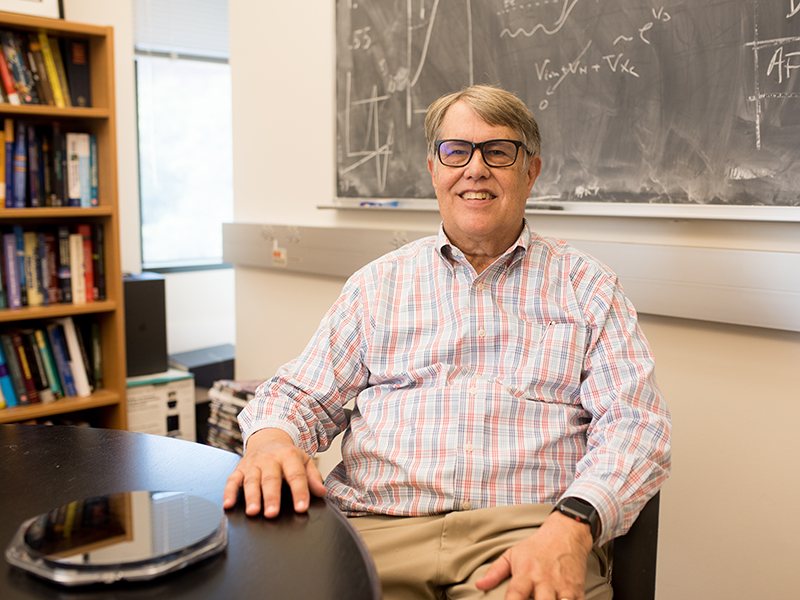
Throughout his 50-year career, Chelikowsky’s focus has been studying electronic materials such as silicon across all length scales. Silicon semiconductors make computer processing possible. As the world’s computing demand increases a continuing goal is to fit more and more information into smaller and smaller pieces of silicon. Think of how all electronic devices have gotten smaller and faster–Chelikowsky’s work helps with accelerating that trend.
His research examines how electronic materials behave, especially at small length scales, and helps identify properties that make certain materials more efficient for various applications. This work helps engineers design and discover new materials beyond silicon. His ideas will drive the high-performance, super computers of tomorrow or materials that improve the efficacy of energy-related materials, like solar cells. This award recognizes the broad and significant impact his work has on understanding the underlying properties of electronic materials.
As the W.A. “Tex” Moncrief, Jr. Chair of Computational Materials at The University of Texas at Austin, Chelikowsky teaches in the McKetta Department of Chemical Engineering along with the departments of physics, and chemistry. He’s also part of UT Austin’s Oden Institute for Computational Engineering and Sciences. He has published more than 425 papers and 6 books.
The John Bardeen Award will be presented at the TMS 2021 Annual Meeting & Exhibition in Orlando, Florida March 14-18, 2021.
Chelikowsky’s other recognitions include: Fellow of the American Physical Society, the American Association for the Advancement of Science and the Materials Research Society, and a John Simon Guggenheim Fellowship recipient. The David Turnbull Lectureship Award from the Materials Research Society in 2001 and the David Adler Lectureship Award from the American Physical Society in 2006. The Aneesur Rahman Prize in Computational Physics from the American Physical Society in 2013. He received his B.S. in physics summa cum laude from Kansas State University in 1970 and his Ph.D. in physics from the University of California at Berkeley in 1975.






